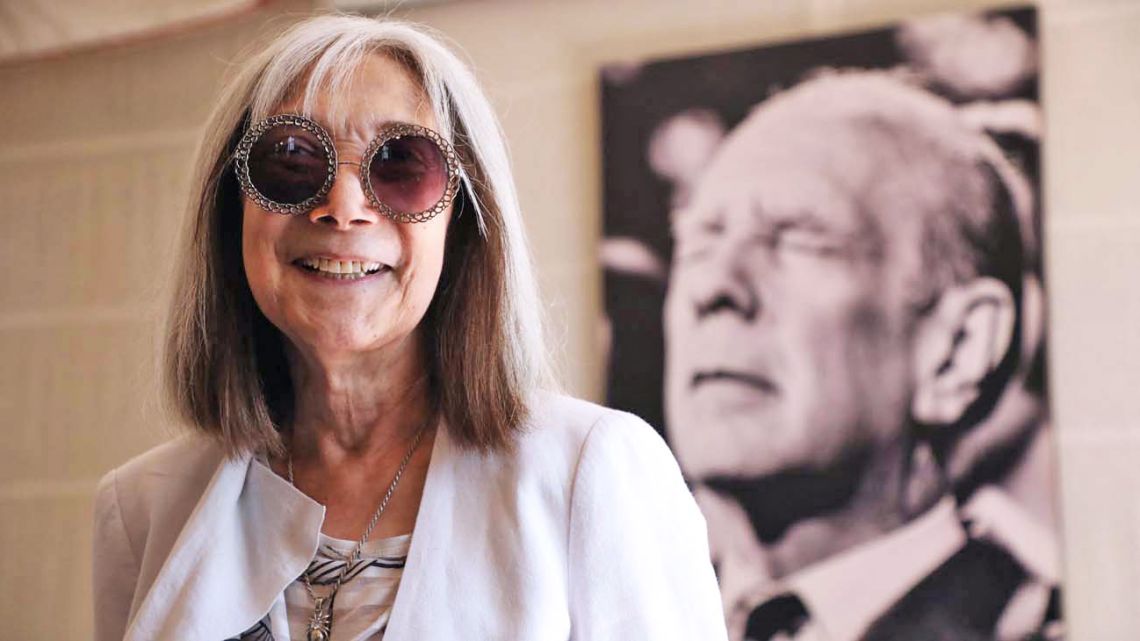Sunday will mark a week after the death of María Kodama, a fact that surprised because she was a person who handled herself with discretion. Few knew that “the widow of Jorge Luis Borges” was going through cancer. Kodama was a figure who divided the waters in Borges’ family and friendship universe, something that deepened with the marriage that took place in Paraguay on April 26, 1986, because the divorce law had not yet been sanctioned in Argentina, and the writer was legally married –for the law of our country– to Elsa Astete. And after the death of Borges, two months later, that division became an abyss. From that moment on, she Kodama was the heir to the Borges legacy, one that has, above all, legal authority over all of her work. After Kodama’s death, it is unknown who he is or who are the holders of that legacy. The will that was going to be made public yesterday, Friday, will only be known in a few days.
Meanwhile, PROFIL consulted with Julián González Mantelli, notary public and president of the Institute of Tax Law of the College of Notaries of the City of Buenos Aires, to define what Argentine law says in situations like this.
—In the event that María Kodama did not leave a will and the Borges Foundation was not the recipient, who would inherit the copyright?
—The owner of those rights was the widow, the only heir of Borges; When she dies, her heirs can be those chosen by her in a will, or the legal ones, that is, family members.
—Would the latter be Borges’s nephews? Or relatives of Kodama?
—The Borges family no longer has any legal possibility of inheriting. It would only correspond to Kodama’s family, who apparently had no direct relatives: living parents, children, or new spouse. Therefore, they could be legal heirs, brothers, nephews and even cousins. Of course, these would only inherit if they had not made a will.
—Up to what category of relatives could they inherit?
—Cousins.
—If Kodama had left the copyright to the Borges Foundation in his will, can it be challenged?
—Wills can always be challenged for formal reasons or for discussing the mental capacity of the person who granted them. Beyond that, “legitimate” heirs—parents, spouse, or children—could attack you for not respecting the mandatory “legitimate portion.” In this case, we could rule out this phantom since those subjects would not exist, although some “son claiming DNA” could always appear, both from María Kodama and from Jorge Luis Borges.
—If Fundación Borges is the heir, is it one hundred percent of the copyright or is there a percentage that they can ask for or that by law corresponds to the relatives?
—The testamentary heir, in the absence of legitimate heirs, is the full owner, without being able to be attacked by anyone and possessing all of them.
—In case the heirs want to challenge that Kodama has left the Borges Foundation as executor, who can challenge the will?
—The succession judge, the fiscal agent who works on the file; someone who can demonstrate a legitimate interest; Kodama’s relatives.
“How long can such a trial take?”
—A probate trial without attacks can come out in less than six months. If someone were to attack you or your rights were contradicted, a stage could be opened with evidence, witnesses, etc., which can last between two years and up to nine or more years.
—Is there any case in which the will of an Argentine writer was complicated by family disputes?
—Yes, there were emblematic cases of fights in hereditary trials. Specifically, that of Roberto Arlt (died in 1942) set a very useful precedent since he distinguished, within intellectual or copyright law, the moral aspect and the pecuniary or economic aspect. The moral aspect is very personal and is out of business, it belongs exclusively to the creator of the work. The economic one is the one that will always be “susceptible of value” and enters as one more good in the inheritance. Regarding the moral aspect, Kodama was very zealous, preventing publications, attacking those who wanted to “disnaturalize” the work, etc. Once the author and his direct heir – in this case his wife – have died, the collection of royalties will not be in doubt that it corresponds to the heir. But the moral face of the law could no longer be assumed by anyone and even the State could intervene for the best interest, invoking freedom of expression and circulation of culture, obviously respecting the economic rights of the exploitation that is done.
—Copyright legally when?
—Law 11,723 gives economic rights up to seventy years after the author’s death. In this case, Borges died in 1986, so it was not until 2056 that his works entered the public domain and could be exploited without any payment.
